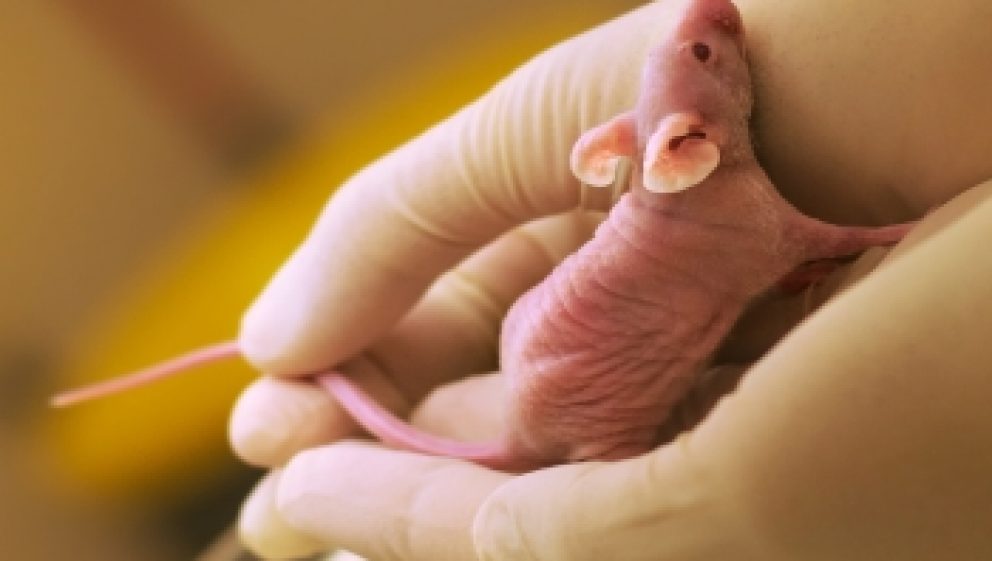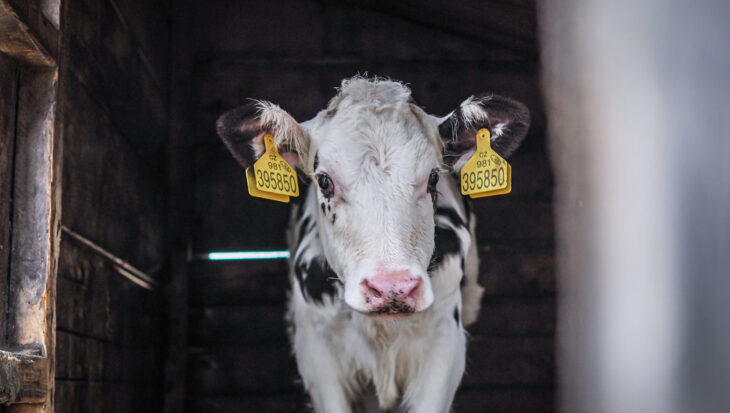The animals, some 6 weeks old and others 16 weeks old, had cancer cells injected into their hearts. The male mice received prostate cancer cells and the female mice received breast cancer cells. The animals were killed at various times after the injection into their hearts.
This shocking research is the latest to be exposed by Animal Aid’s Victims of Charity campaign. This campaign highlights how some medical charities, frequently household names, are involved in cruel and outdated animal research. This not only entails suffering to animals, but also represents unreliable science.
Animal Aid has long campaigned to raise awareness that data gathered from ‘animal models’ is not reliably predictive of the human condition. This is due to numerous factors including species differences – between humans and other animals – and how the disease is ‘created’ in the animal. The importance of these factors is enormous; this latest exposé is no exception, with the researchers themselves outlining how their method of creating cancer in these animals is very different to the human situation.
In addition to the suffering caused by the experiments themselves, animals also suffer due to the stressful laboratory environment. In this case, the researchers give no description of how the animals were kept, whether they were caged alone, had bedding or enrichment, what they were fed or how much light they had each day. We also know from other publications that the type of mouse used in this research, ‘BALB/c nude mice’, have been described as having many health problems such as aggression in males, heart problems and eye problems – including where the edges of the eyelids become inflamed and where abscesses form around the eyes.
Says Jessamy Korotoga, Animal Aid’s Anti-Vivisection Campaign Manager:
‘That Cancer Research UK have been linked to yet more unreliable and cruel animal research is dreadful. That they have been thanked for providing ‘generous financial support’, should serve as a call to all those who donate to CRUK to challenge them on where their donations are being spent and on why such archaic experiments are still receiving support. In this day and age, these high-profile charities should be leading by example and investing only in humane, non-animal research methods.’
Notes for editors
- Reference of paper: Wang, N. et al (2015) ‘The frequency of osteolytic bone metastasis is determined by conditions of the soil, not the number of seeds; evidence from in vivo models of breast and prostate cancer’, Journal of Experimental and Clinical Cancer Research, vol.34, pp.124 (DOI 10.1186/s13046-015-0240-8)
- Find out more about this experiment
- Find out more about Animal Aid’s Victims of Charity campaign
- 76 per cent of respondents in a YouGov national opinion poll have said that they would be unlikely to knowingly leave money in their will to a charity that funds animal experiments. Yet vivisection-funding organisations receive millions of pounds from legacies. Find out more about Animal Aid’s Don’t leave a legacy of Suffering campaign
- Cancer Research UK (CRUK), according to their annual report and accounts for 2015/2016, had an income of £635 million, with legacies accounting for £178 million of this.
- For further information or to arrange an interview, please call 01732 364546 extension 236
Order an End Animal Experiments action pack


